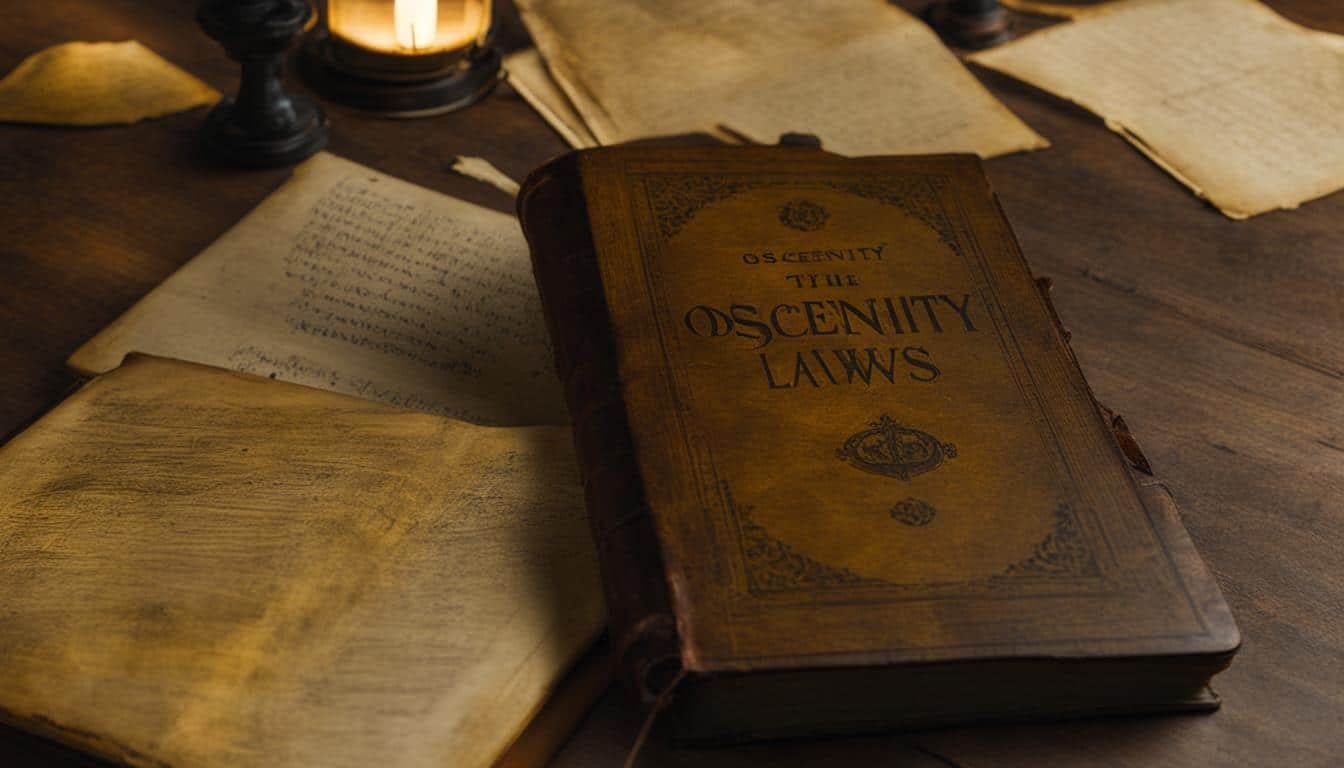The First Amendment of the U.S. Constitution guarantees the right to freedom of speech and freedom of the press. It prohibits the government from interfering with individuals’ rights to hear all sides of every issue, speak, publish, read, and view what they wish. The Supreme Court has consistently upheld the First Amendment as protection against government attempts to suppress ideas and information, including various forms of media such as books, magazines, newspapers, art, film, music, and materials on the internet.
Public institutions, such as public schools and libraries, have often become battlegrounds for legal battles surrounding access to information and censorship. While individuals have the right to express their beliefs and values, the government is restricted from regulating or restricting speech or expression based on content or viewpoint.
Key Takeaways:
- Censorship laws regulate media content and its impact on freedom of speech and the press.
- The First Amendment protects individuals and society from government interference and censorship.
- Public institutions, like schools and libraries, often face legal challenges concerning access to information.
- Government restrictions on speech and expression based on content or viewpoint are prohibited.
- Freedom of speech and the press are essential to a democratic society.
The Impact of Book Bans and School Censorship on Freedom of Expression
Efforts to ban specific topics from school libraries, including books about LGBTQ people and race, have gained attention. The Supreme Court ruled in 1982 that a school district violated students’ constitutional rights under the First Amendment when it banned a selection of books. The current wave of book bans is notable for its focus on LGBTQ issues and people of color. Journalists covering book bans should prioritize centering and elevating the voices of LGBTQ students, authors, parents, teachers, and advocates.
It is important to avoid false framings that pit book bans as a “parents’ rights” issue or a “culture war.” Including background information on the activists and elected officials proposing bans, as well as professional and expert voices, can provide context and legal precedent to protect student access to books. Resources such as the American Library Association (ALA) and the National Coalition Against Censorship (NCAC) offer support and information for journalists covering book bans and school censorship.
“Book bans have a significant impact on students’ right to access diverse and inclusive literature. It sends a message to LGBTQ students that their stories are not valid or important. As journalists, it is crucial to highlight the voices of those affected by book bans and expose the discriminatory nature of these actions.” – Sarah Thompson, LGBTQ Rights Advocate
The Importance of Protecting Students’ Constitutional Rights
When discussing book bans and school censorship, it is essential to emphasize the impact on students’ constitutional rights. These bans restrict students’ access to information, limit their exposure to diverse perspectives, and undermine their freedom of expression. By shining a spotlight on the individuals and organizations fighting against these bans, journalists can contribute to the ongoing conversation about the importance of protecting students’ rights to access books that reflect their identities and experiences.
| Impacts of Book Bans and School Censorship | Actions to Protect Freedom of Expression |
|---|---|
|
|
Addressing Offensive Behavior Online: Cyber-bullying, Cyber-racism, Cyber-sexism, and Cyber-homophobia
In today’s digital age, the internet has become a platform where offensive behavior such as cyber-bullying, cyber-racism, cyber-sexism, and cyber-homophobia thrives. These harmful actions not only impact individuals’ well-being but also raise concerns about human rights and equality.
Cyber-bullying, characterized by the intentional use of technology to harm others, can have severe consequences on a person’s physical and mental health. It impairs their right to work, freedom of expression, access to education, and the ability to lead a life free from violence. Similarly, cyber-racism perpetuates discriminatory practices, with racist posts and pages on social media platforms propagating hate speech and fostering division.
Moreover, cyber-sexism further adds to the issue by subjecting individuals to sexually explicit messages and harassment online. The rise of cyber-homophobia has also seen an alarming increase in homophobic language and targeted harassment against the LGBTQ community. These forms of offensive behavior not only infringe upon people’s rights but also create an atmosphere of fear and hostility.
Australia has taken a proactive approach in addressing these concerns by enacting laws that aim to combat cyber-bullying, cyber-racism, cyber-sexism, and cyber-homophobia. These laws provide a framework for the protection of individuals and the prevention of discrimination and harassment online. By holding offenders accountable, these regulations contribute to fostering a safer and more inclusive digital environment.
Source Links
- https://www.ala.org/advocacy/intfreedom/censorship
- https://humanrights.gov.au/our-work/5-current-issues-internet-censorship-bullying-discrimination-harassment-and-freedom
- https://glaad.org/book-bannings-and-school-censorship-media-guide/







